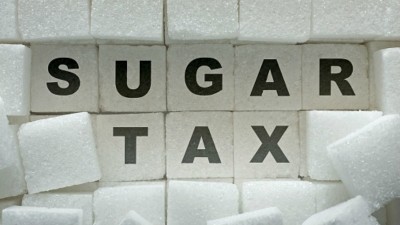Not a taxing question: Australian sugar sweetened beverage consumption slumps as obesity rates continue to soar

Research funded by the Australian Beverage Council shows that volume sales of SSBs had decreased 27% from 83 to 61L/person between 1997 to 2018, largely driven by the decline in carbonated soft drinks (76 to 45L/person).
On the other hand, volume sales of non-SSBs (water, diet soda etc) increased from 48 to 88L/person, with pure unflavoured still water mostly contributing to the increase (6 to 48L/person).
In fact, volume sales of non-SSBs have exceeded those of SSBs since 2015.
In an interview with FoodNavigator-Asia, Geoff Parker, chief executive officer at Australian Beverages Council said: “This is a significant step in the right direction as it shows that the beverage industry is continuing to provide choices for consumers who want low or no sugar variety.”
The yearly contribution of SSBs to the sugar content of the national diet had declined from 9.0 to 6.4kg/person.
Obesity strategy
Lowering intake of SSBs has been advocated as a major obesity prevention strategy in Australia, with industry playing a crucial role.
In 2018, the country’s largest beverage companies came together with a united goal, to reduce sugar by 10% by 2020, and 20% by 2025.
Last year, the Australian Beverages Council published an interim report, revealing that the industry had reduced sugar by 7%, about a third of the goal.
However, according to Parker, the overweight and obesity rates continue to increase in Australia. More than two-thirds of adults and one-quarter of children in Australia were overweight or obese.
“What this research shows is that SSBs are not unique contributors to obesity, while sales and consumption of SSBs are declining, the rates of obesity are still increasing.”
He stressed that: “Obesity is multi-factorial, the reason why people become overweight and then obese, is because of the lack of physical activity, a sedentary lifestyle, and also poor diet.”
He explained a sugar tax alone would not reduce the obesity rates in the country, and was a complex challenge for the government to overcome.
“The beverage industry is against a sugar tax, and SSB tax. The evidence and science behind the effectiveness of a sugar tax is weak.”
He cited a UN meeting in 2018 on non-communicable diseases: “They had considered and rejected an SSB tax.”
Recovering from COVID-19
The Australian Beverages Council will announce the sugar reduction 2020 pledge results next year.
For now, it is focused on recovering and rebuilding the economy hit by COVID-19.
“The biggest impact has been the closure of hotels, restaurants, and cafes which have affected sales of non-alcoholic beverages.
“In Australia, the Easter holiday, which is traditionally the second biggest trading period behind Christmas and New Year for many sectors, not just beverages, had been quiet and subdued this year.”
“The beverage industry will have a role to play in supporting jobs and the government in recovering from COVID-19 in Australia and within APAC.”
Source: Nutrients
https://doi.org/10.3390/nu12041016
“Sales of Sugar-Sweetened Beverages in Australia: A Trend Analysis from 1997 to 2018”
Authors: William S. Shrapnel and Belinda E. Butcher









